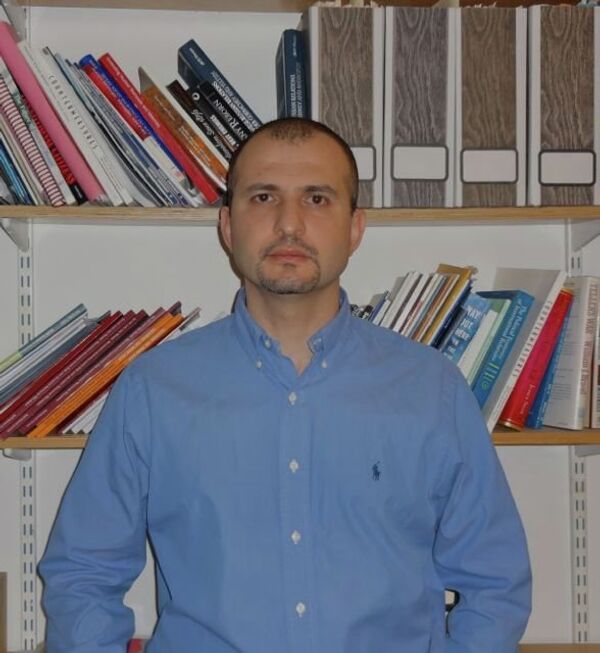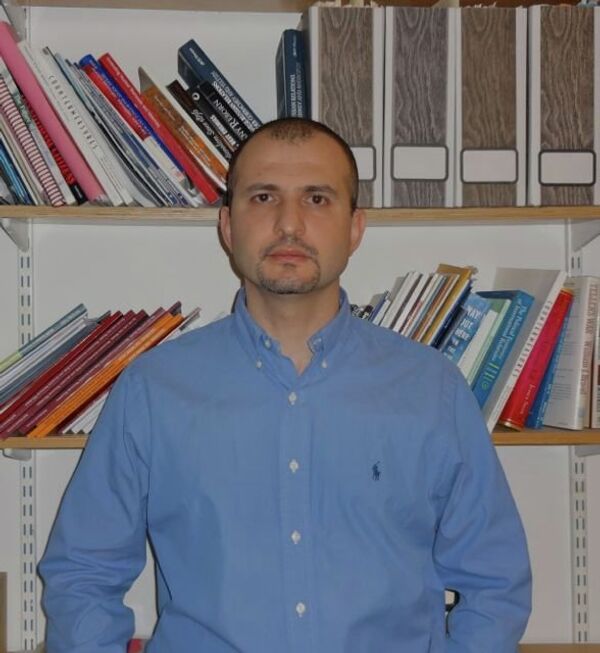If the message from Russian President Vladimir Putin that his national security advisor Nikolai Patrushev transmitted to US President Barack Obama last week is meant to be the Russian leader’s final offer in US-Russian negotiations over America’s ballistic missile defense (BMD), then Russian and US diplomats might as well quit trying to find a compromise solution to the thorniest of problems impeding the development of bilateral relations. But though a US-Russian consensus on missile defense appears to be a prerequisite for building a deep and lasting partnership between Moscow and Washington, the two countries can pursue a “partnership of convenience” on selected issues, even in the absence of a BMD deal.

It’s rather unusual for a messenger to disclose the contents of what he has just delivered, but that’s exactly what Patrushev did upon handing Putin’s letter to Obama on May 22. While the US and Russian press had to rely on “sources” in Moscow and Washington for a glimpse of
Obama’s own letter to Putin in April, the powerful secretary of Russia’s Security Council granted a 1,200+ word interview to a Russian newspaper to spell out the main points of Putin’s response.
But, while unorthodox, such a disclosure should not come as a shock to anyone who knows how close Patrushev is to the Russian president and the role that he plays in formulating Russia’s security, defense and foreign policies.
And judging from Patrushev’s comments in the interview, published in the May 25 issue of the Kommersant daily, the prospects of Russia and the US overcoming what pundits on both sides have identified as the greatest obstacle to deeper bilateral cooperation are dim.
Obama’s decision to essentially cancel the development of the SM-3 Block IIB interceptor of Phase 4 of the European Phased Adaptive Approach (EPAA), which Russia’s political-military leadership had voiced the strongest objections to, arguing it would be able to intercept Russian ICBM, is nothing but a “cosmetic alteration,” according to Patrushev.
And the “political declarations on the absence of intentions to undermine the strategic deterrence potential of the other side are clearly insufficient” too, according to Patrushev. (So much for my idea of a NATO-Russian BMD cooperation act that would contain assurances on the absence of such intentions).
Nor is the offer to sign an executive agreement that would commit the US to transparency in the sphere of missile defense sufficient to assuage the Kremlin’s concerns about the open-ended nature of US BMD plants, according to Russia’s national security supremo.
The man who leads the conservative wing of Russia’s ruling elite may sound too uncompromising to some, but I would argue that he has a point or two.
First of all, the proposed executive agreement would be valid only for as long as Obama remains in the White House. And, secondly, while transparency measures would give Russia some kind of official warning that US BMD may be evolving in ways that would undermine Russia’s deterrence potential, these measures would do nothing to prevent those plans from materializing.
At the same time, for Russia to hope for what Patrushev has described as “legally-binding international treaties developed on the basis of equality and the strictly verified balance of interests of sides” is plain unrealistic.
The United States didn’t walk out of the 1972 Anti-Ballistic Missile (ABM) treaty in 2001 only to sign an ABM-II a dozen years later. Even if Obama reneges on the promise that he has made to US lawmakers not to accept any constraints on US missile defense, it is difficult to imagine that the 2014 elections will hand Democrats a two-thirds majority in the Senate, which they would need to ensure the ratification of an arms control treaty.
I would argue that Putin’s reserved and constructive reaction to America’s withdrawal from the ABM treaty more than a decade ago still offers clues on how Moscow and Washington could resolve the BMD issue, which some pundits say could become the ultimate game-changer in the bilateral relationship.
In his December 2001 statement, Putin called that withdrawal a mistake, but asserted that it “does not threaten Russia's national security,” and called on the US side to “work out a new framework of strategic relations as soon as possible.”
Putin’s call has remained unanswered, but that doesn’t mean the Putin and Obama administrations cannot give this idea of a new strategic US-Russian framework a shot.
For such a framework to be truly new, however, it should foster the development of such deep and lasting ties across the entire spectrum of the bilateral relationship that the two countries would finally be able to put mutual nuclear deterrence behind them. And if the two nations are no longer locked in mutual nuclear deterrence, then the very debate of whether US BMD may or may not negate Russian strategic nuclear forces’ retaliatory strike capability would become obsolete and meaningless.
Russia and the United States can take a number of steps in different spheres to build a foundation for such an innovative framework. And some of these steps are already being developed in advance for Putin and Obama to sign off on during their meetings in June and September, according to policy-makers on both sides. These steps include a new Cooperative Threat Reduction program, a new working group under the US-Russia Bilateral Presidential Commission that will focus on cyber security, a new consultative mechanism on economic cooperation at the level of the US vice president and Russian prime minister, resumption of the 2+2 format of meetings of US and Russian defense and foreign policy chiefs, and a joint presidential statement on counter-terrorism cooperation.
But even if these and other steps do not ultimately lead to a new framework of strategic relationship that would retire the mutual deterrence and, therefore, end the dispute over BMD, the latter doesn’t have to derail the relationship, contrary to warnings made by some pundits.
Thirty years after Ronald Reagan’s famous Star Wars speech, in which he vowed to build a missile defense shield that would render nuclear weapons “impotent and obsolete,” America is still far from developing BMD capabilities that could discriminate against decoy measures of Russian ICBMs to intercept them effectively.
And the Kremlin is well aware of this fact. Indeed, one indicator that Russian leaders are not genuinely concerned about maintaining a strict strategic nuclear parity with the United States is that they appear to have no strong qualms about the striking disparity between the number of US and Russian deployed launchers. The United States has 300 more deployed strategic delivery systems than Russia, according to the data the two countries released in compliance with the New START released in April.
Even in the absence of BMD cooperation, the two countries can still cooperate on issues where their interests will continue to converge, be it counter-terrorism or non-proliferation or prevention of failed states. It won’t be the deep strategic partnership that proponents of the bilateral rapprochement envision, but it is still better than fighting a new US-Russian Cold War that both sides have no real interest in and for which they have few spare resources.
Simon Saradzhyan is a researcher at Harvard Kennedy School's Belfer Center. His research interests include international security, arms control,
counter-terrorism as well as political affairs in post-Soviet states and their relations with major outside powers. Prior to joining the Belfer Center in 2008 Saradzhyan had worked as deputy editor of the Moscow Times and a consultant for the United Nations and World Bank. Saradzhyan holds a graduate degree from the Harvard University.
The views expressed in this column are the author’s alone.
View From the Global Tank: The Last Chance to Prevent a Mediterranean Somalia
View From the Global Tank: Boston Bombing Puts Spotlight on Security Services’ Failure to Cooperate
View From the Global Tank: Europe Ignores Collective Security System Flaws at Own Peril
View From the Global Tank: Why Nuclear Powers Should Start Walking Toward Global Zero
View From the Global Tank: Russia Needs to Develop Eastern Provinces as China Rises
View From the Global Tank: A Chinese Silver Bullet for North Korea’s Nuclear Program?
View From the Global Tank: Russia Can Shoulder Obama’s Challenges - After a BMD Deal



